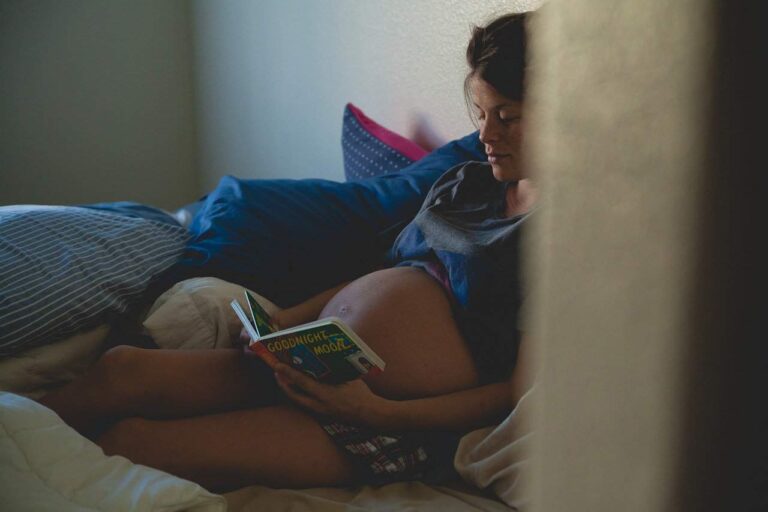C-Secttion Incision Smells and How to Take Care of That
Every year, millions of infants are born through C-sections. In the US, 1 out of 3 mothers delivers their babies through cesarean. Many moms seek a C-section because it is safer and more convenient.
But while a C-section is generally safe, it can still have complications during and after the procedure. Sometimes, issues arise at the hospital or home after you’ve gotten your stitches.
An out-of-place smell is one indication that can tell you that something has gone wrong. And weird smells after a C-section are a red flag. So what’s going on with you and your incision?
How Are Cesareans Done?
A cesarean is a life-saving procedure for many mothers and infants. In some cases, parents and doctors plan a C-section ahead of time. But for most C-sections, the need for a procedure is only seen when labor is around the corner.
Why do moms choose a C-section? Maybe they are stuck in labor, or their infants are in critical condition. Having two or more infants can also be a factor. If someone has had a C-section in the past, they are more likely to get one again. Or there is simply an obstruction that makes vaginal delivery a pain for someone and their baby.
Whatever the reason may be, a C-section can help speed the process and even save the lives of a mom and child.
There are two types of incisions that your surgeon can do. A vertical incision is quicker and often the option for emergency procedures. However, the scar will be more visible, and healing will be more painful.
Meanwhile, a horizontal incision will be above the pubic area, so it’s easier to hide. It is also more common because it heals faster and is less painful.
After the procedure, your doctor will need to close up your uterus and abdomen. Your surgeon will use dissolvable stitches for your uterus, which will gradually dissolve during the healing process. Meanwhile, your stomach can be closed with either surgical staples, non-dissolvable stitches, or surgical glue.
Why Does My C-Section Incision Smell?
Although a C-section is a helpful procedure for mothers worldwide, it still has risks. A cesarean is a major surgery that needs care.
One of the most common complications is an infection. An infected incision may emit a foul odor. That odor might be coming from the pus. (Although, in other cases, pus can also be odorless.)
But the smell isn’t the only sign of infection down there. You might also see swelling and redness around your incision. And here’s another smelly symptom: you might find foul-smelling vaginal discharge when your incision is infected.
What are The Risk Factors for Infection?
Infection can happen to anybody. However, some mothers are more at risk than others. Medical conditions and environmental factors play a role in a mom getting an incision infection.
Mothers who are obese are at a higher rate of getting an infection. Those with illnesses like diabetes and HIV are also more likely to get affected. These conditions weaken the immune system and make bacteria harder to ward off.
Neglect from doctors and hospital staff can also lead to an infection. Poor prenatal care and lack of antimicrobial precautions can lead to potential issues. Infection can happen either during or after the procedure.
C-Section Infection Treatment
An infection can lead to more painful illnesses throughout the body. In some instances, it can also be fatal. Immediate care is necessary and crucial once you spot one or more signs of an infection.
A visit to your doctor is the best option. Your doctor will examine your wound and its potential cause. They might need to open the incision for a better examination and collect pus for a better diagnosis.
In most cases, you will be given antibiotics by your doctor. It can either be administered through IV or taken orally. In some cases, your doctor will have to drain the pus and put an antiseptic gauze on top of your wound. Regular check-ups will help in the healing process.
How to Care for Your Cesarean Incision
Prevention is always better than cure. An incision infection is a painful experience that nobody wants to experience (or experience again).
A cesarean will make you feel uncomfortable for the first few days. Sometimes, it can even hurt for a week! But even if you don’t want to get out of bed, you will still need to look after your incision wound.
Here are some tips on how you can avoid infection from getting to your C-section:
- Regularly clean your wound every day. Gently wash it with mild soap and water. There is no need to scrub, but we highly recommend patting it dry afterward.
- Take painkillers like ibuprofen or paracetamol to ease the pain. But be careful of medicines like codeine because it can find its way into your breast milk. The rule of thumb is to always ask your doctor first.
- Wear loose-fitted outfits on top of your wound. Avoid tight shirts, leggings, or underwear that can rub and irritate your incision. The moisture from your sweat can make the area prone to infections.
- Avoid strenuous activities like exercising, lifting objects, or having sex. Too much force on your body can force your wound to re-open. Plus, rough activities can expose you to bacteria.
- Practice proper hygiene, especially when handling your wound. Never touch your incision with dirty hands, and avoid going near anything dirty while exposed.
Conclusion
A smelly C-section incision can be a sign of an infection. Be on the lookout for other symptoms, like fever and swelling.
Infections are a painful experience, so you will want treatment as soon as possible. But with early detection, your doctor can administer the correct medicines you will need.
Getting a C-section can help make pregnancy a little bit easier. But keep in mind that complications are a part of any major surgery. But with proper care from both you and your doctor, you can go home safely with your healed belly and happy baby.










